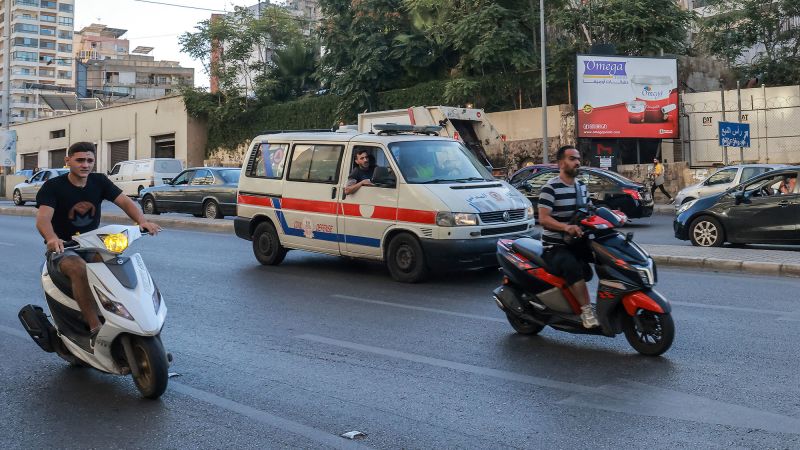The US was “not involved” in the series of pager explosions in Lebanon and was “not aware” of any attack in advance, according to a State Department spokesperson.
Miller would not say what information the US has so far, and would not say whether the US assesses that Israel is responsible or not.
Hezbollah and Lebanon have both blamed Israel for the attack, which injured about 2,800 people and killed at least nine people, according to the Lebanese health minister. The Israel Defense Forces did not comment.
“I don’t have any assessment to offer one way or other at this point,” said Miller.
Miller would not say if the US would make its own assessment, but said it was “gathering information through all of the ways in which we usually gather information.”
“I don’t want to prejudge what we’ll say in the days to come,” Miller said.
Asked if there were indications that Iran could retaliate, given reports that the Iranian ambassador was injured, Miller said he did not want to speculate until those reports were confirmed.
“I’ve seen the reports. I don’t want to speak to what the implications might be before a report is confirmed. But certainly, as is always the case, we would urge Iran not to take advantage of any incident, any instability, to try to add further instability and to further increase tensions in the region. That has been our message to Iran since October 7,” he said.
Miller also repeated that the US believes there needs to be a diplomatic solution to the conflict in northern Israel with Hezbollah, and that it is important for Israel and Hamas to reach a ceasefire in order to make a diplomatic resolution in the north easier.
Miller said it is “very, very difficult to get a diplomatic resolution in the north absent a resolution to the conflict in Gaza, absent a ceasefire in Gaza, which is why we continue to push for that ceasefire, because we think it’ll help make it much easier to reach a resolution.”
Miller would not say how the US views this attack affecting the ceasefire talks.

